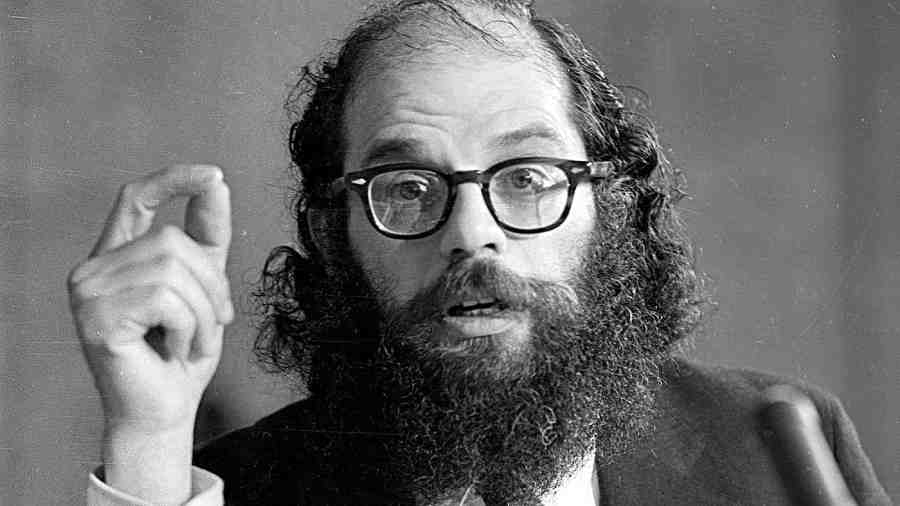At the start of the 20th century, the United States saw the rise of an enduring form of radicalism, as a fitting response to the post-war conformism of American society. With ‘first thought, best thought’ (Ginsberg 1956) as the founding philosophy of the Beat Generation, Allen Ginsberg (1926-1997) and his fellow Beat poets initiated the American counterculture movement through sexual liberation and exploration, acknowledgement of bodily desires, deviation from traditional conventions, hallucinogenic drugs, and the rejection of mainstream standardization.
With a keen interest in the street lifestyle of a city, Ginsberg wrote poems that underlined the ills of conformity, consumerism and commodity fetishism — ‘I saw the best minds of my generation destroyed by madness, starving hysterical naked/ dragging themselves through the negro streets at dawn looking for an angry fix.’ (Howl 1-2). These poignant lines are ever etched in the hearts of Ginsberg’s readers and represent the psychological dilemma of all those who are in a fix about their personal desires and inclinations, and the imposed norms of life. Ginsberg’s similar comment on commodification is perhaps best concretized in his poem A Supermarket in California where he subtly parodied the capitalist tendency to equate mindless purchasing with success and accomplishment in life. He continually urged his readers to realise that a life imbued with unthinking compliance leaves a person with little to no idiosyncratic sense of individuality.
Ginsberg was a strong admirer of the work of American poet, Walt Whitman, and therefore, believed in his vision of America as a melange of different cultural, political, social and marginalized identities. Ginsberg believed in the diversification of his society — one that celebrated differences. It therefore does not come across as a surprise that Ginsberg’s poetry features the lives of a variety of identities existing together — queer people, bohemians, artists, nonconformists all find representation. Ginsberg also employed uncensored words in his poetry to break free from the hegemony of heteronormative stereotypes. ‘Moloch in whom I sit lonely! Moloch in whom I dream Angels! Crazy in Moloch! C**ksucker in Moloch! Lacklove and manless in Moloch!’ (lines 19-20), wrote Ginsberg in Howl and articulated the mental suffering of all those who had to repress their sexuality in order to be ‘accepted’ by society. Ginsberg was openly gay himself and in his poem Kaddish, he mentioned feelings of ‘a mortal avalanche, whole mountains of homosexuality’ — the openness that he exhibited about his own sexual orientation in a society that shunned any kind of discourse surrounding queer sexuality (and against the backdrop of the infamous Lavender Scare that threw hundreds of homosexual people out of jobs in the United States), inspired thousands of repressed individuals to come forward and be open about who they are, what they truly stand for.
Ginsberg’s writings empowered him to not only express his own self but also to show the world what freedom lay in his poetry, to rebel against the imposed status quo and to provide impetus to revolution. To this day, Ginsberg remains etched in American poetic history as an emblem of radicalism, as a cultural hero, as an enduring voice of inclusion, diversification and resistance.
